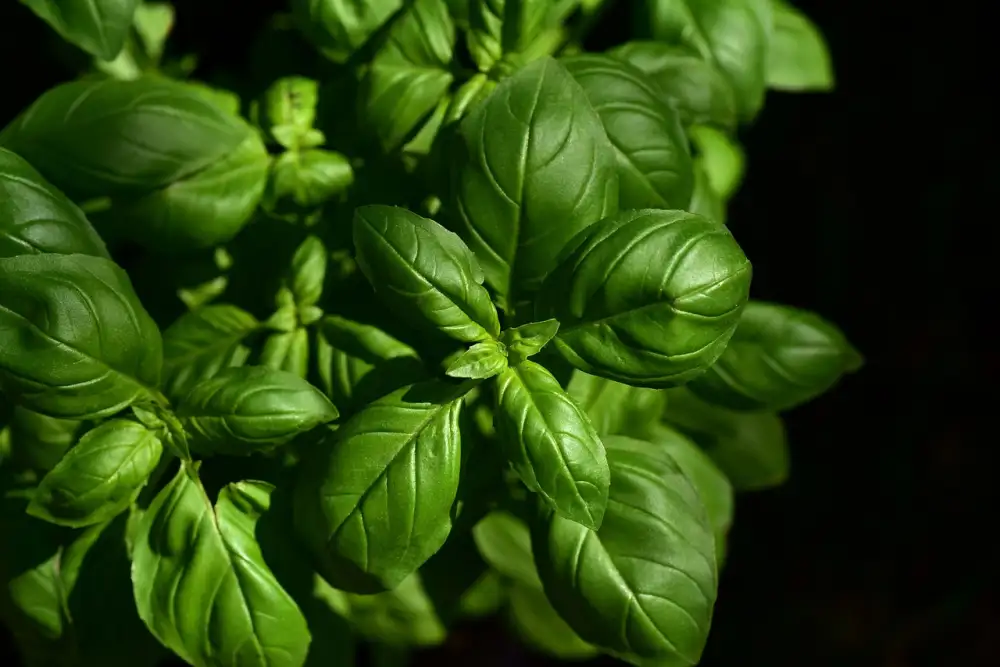Unveiling the Exquisite Italian Seasoning Ingredients: Elevate Your Culinary Creations with Authentic Flavors

- Basil: The Fragrant Herb of Italian Cuisine
- Oregano: Adding Depth and Earthiness to Italian Dishes
- Rosemary: Aromatic and Versatile Herb in Italian Seasoning
- Thyme: Enhancing Flavors in Italian Cooking
- Garlic: The Essential Ingredient for Authentic Italian Taste
- Onion: Adding Sweetness and Complexity to Italian Seasoning
- Red Pepper Flakes: Bringing the Heat to Italian Dishes
- Parsley: The Fresh and Vibrant Herb in Italian Seasoning
Italian cuisine is renowned for its rich and flavorful dishes that tantalize the taste buds. At the heart of these culinary creations lies a secret: Italian seasoning ingredients. These carefully selected herbs and spices are the key to unlocking the authentic flavors of Italy. From fragrant basil to fiery red pepper flakes, each ingredient plays a vital role in elevating your dishes to edible masterpieces. Join us on a journey as we unveil the exquisite Italian seasoning ingredients that will transform your culinary creations into works of art.
Basil: The Fragrant Herb of Italian Cuisine
Basil, with its distinct aroma and flavor, is considered the king of Italian herbs. It is a key ingredient in many traditional Italian dishes, adding a fresh and fragrant touch. The sweet and slightly peppery taste of basil complements a wide range of ingredients, making it versatile in Italian cuisine. Whether used in pasta sauces, pesto, or as a garnish on pizzas and salads, basil brings an unmistakable Mediterranean charm to any dish. Its vibrant green leaves not only add visual appeal but also contribute to the overall sensory experience of Italian flavors.
Oregano: Adding Depth and Earthiness to Italian Dishes
Oregano is a key ingredient in Italian seasoning, adding depth and earthiness to Italian dishes. This aromatic herb has a robust flavor profile that complements a wide range of ingredients. Whether used in pasta sauces, pizza toppings, or meat marinades, oregano brings a distinctive taste that is synonymous with Italian cuisine. Its slightly bitter and peppery notes add complexity to dishes, balancing out the richness of other flavors. Oregano also offers health benefits, containing antioxidants and antimicrobial properties. So next time you're cooking up an Italian feast, don't forget to sprinkle some oregano for that authentic and flavorful touch.
Rosemary: Aromatic and Versatile Herb in Italian Seasoning
Rosemary is an aromatic and versatile herb that plays a crucial role in Italian seasoning. Known for its distinct pine-like fragrance, rosemary adds depth and complexity to Italian dishes. Its robust flavor pairs well with meats, vegetables, and even bread.
In Italian cuisine, rosemary is commonly used in roasted meats such as lamb or chicken. The herb's strong aroma infuses the meat, creating a mouthwatering and savory dish. Rosemary can also be added to marinades or rubs to enhance the flavors of grilled or roasted vegetables.
Aside from its culinary uses, rosemary has been valued for its medicinal properties for centuries. It is believed to improve digestion, boost memory, and have antioxidant benefits. In Italian cooking, rosemary not only adds flavor but also contributes to overall well-being.
When using rosemary in your dishes, it's important to remember that a little goes a long way. Its potent flavor can easily overpower other ingredients if used excessively. Fresh rosemary leaves can be chopped finely or used whole on sprigs for added visual appeal.
Whether you're making a classic Italian pasta sauce or a hearty Tuscan stew, don't forget to include rosemary in your seasoning blend. Its aromatic qualities and versatility make it an essential ingredient in creating authentic Italian flavors that will elevate your culinary creations to new heights.
Thyme: Enhancing Flavors in Italian Cooking
Thyme is a key ingredient in Italian seasoning, known for its ability to enhance the flavors of various dishes. This aromatic herb adds a subtle earthiness and depth to Italian cuisine. Its delicate leaves have a slightly minty and lemony flavor that pairs perfectly with meats, vegetables, and sauces. Whether used fresh or dried, thyme brings a unique and savory taste to your culinary creations. Its versatility makes it an essential component in Italian recipes such as roasted chicken, pasta sauces, and soups. By incorporating thyme into your cooking, you can elevate the flavors of your Italian dishes to new heights.
Garlic: The Essential Ingredient for Authentic Italian Taste
No Italian dish is complete without the unmistakable flavor of garlic. This pungent bulb adds a depth and complexity to Italian cuisine that is simply unparalleled. Whether it's sautéed in olive oil, roasted until golden, or finely minced and added to sauces, garlic infuses every bite with its distinct aroma and taste.
Known for its health benefits and culinary versatility, garlic has been a staple ingredient in Italian cooking for centuries. Its strong flavor can be both bold and subtle, depending on how it is prepared. When cooked gently, garlic becomes mellow and sweet, while intense heat brings out its robust and earthy notes.
In Italian seasoning blends, garlic plays a crucial role in enhancing the overall taste profile. It harmonizes with other herbs like basil and oregano to create a balanced combination of flavors that are essential to classic dishes such as pasta sauces, bruschetta, and risottos.
To fully unlock the potential of garlic in your Italian creations, it's important to use fresh garlic rather than pre-minced or powdered alternatives. Fresh garlic offers a more vibrant taste that elevates any dish to new heights. Simply peel the cloves, crush them with the flat side of a knife blade, and mince them finely before incorporating them into your recipes.
Whether you're preparing a hearty lasagna or a simple spaghetti aglio e olio, don't underestimate the power of garlic in capturing the essence of authentic Italian cuisine. Its aromatic presence will transport you straight to the sun-drenched hillsides of Tuscany or the bustling streets of Rome. So embrace this essential ingredient and let its bold flavor take your culinary creations to new heights.
Onion: Adding Sweetness and Complexity to Italian Seasoning
Onion, with its sweet and complex flavor, plays a crucial role in Italian seasoning. Whether it's sautéed, caramelized, or used raw, onion adds depth and richness to Italian dishes. Its natural sweetness balances out the acidity of tomatoes and enhances the overall flavor profile. From classic pasta sauces to hearty soups and stews, onion is a staple ingredient that brings a delightful complexity to any Italian recipe. Don't underestimate the power of this humble vegetable when it comes to creating authentic Italian flavors.
Red Pepper Flakes: Bringing the Heat to Italian Dishes
Red pepper flakes are a crucial ingredient in Italian cuisine, known for adding a fiery kick to dishes. These small flakes are made from dried and crushed red chili peppers, delivering a bold and spicy flavor that can elevate any Italian dish. Whether sprinkled on top of pizza, stirred into pasta sauces, or added to marinades, red pepper flakes bring a delightful heat that enhances the overall taste profile of the dish. Just a pinch can transform a simple pasta into an exciting and flavorful meal. So, if you're looking to add some heat to your Italian creations, don't forget to reach for the red pepper flakes!
Parsley: The Fresh and Vibrant Herb in Italian Seasoning
Parsley is a fresh and vibrant herb that plays a crucial role in Italian seasoning. Known for its bright green color and delicate flavor, parsley adds a refreshing touch to any dish. Whether used as a garnish or incorporated into the recipe, parsley brings a burst of freshness that elevates the overall taste.
In Italian cuisine, flat-leaf parsley is the preferred variety due to its stronger flavor compared to curly parsley. It has a slightly peppery and earthy taste that complements other ingredients in Italian dishes.
One classic Italian recipe where parsley shines is gremolata, a mixture of chopped parsley, lemon zest, and garlic. This zesty combination adds a burst of flavor to dishes like osso buco or grilled meats. The vibrant green color of parsley also makes it an excellent addition to pasta sauces, soups, and risottos.
Apart from its culinary uses, parsley is also packed with nutrients. It is rich in vitamins A, C, and K, as well as iron and antioxidants. So not only does it enhance the flavors of your Italian creations but also provides health benefits.
When using parsley in your cooking, it's important to add it towards the end of the cooking process to preserve its fresh taste and vibrant color. You can finely chop it or use whole leaves depending on your preference.
In conclusion, parsley is an essential ingredient in Italian seasoning that brings freshness and vibrancy to dishes. Its delicate flavor and nutritional value make it a versatile herb that enhances the authenticity of Italian flavors. So next time you're preparing an Italian meal, don't forget to include this fresh herb for an extra touch of deliciousness.
Unlocking Authentic Italian Flavors: A Guide to Essential Seasonings
In conclusion, the key to creating authentic Italian flavors lies in using the right seasoning ingredients. Basil, oregano, rosemary, thyme, garlic, onion, red pepper flakes, and parsley are all essential components of Italian seasoning that elevate your culinary creations to new heights.
By incorporating these herbs and spices into your dishes, you can infuse them with the distinct fragrances and tastes that are synonymous with Italian cuisine. Whether you're making a classic pasta sauce or a hearty stew, these ingredients will add depth, complexity, and a touch of Mediterranean magic.
Remember to use fresh herbs whenever possible for maximum flavor impact. The vibrant green leaves of basil and parsley not only enhance the visual appeal of your dishes but also contribute their unique aromas. Similarly, the earthiness of oregano and thyme complements the robust flavors found in many Italian recipes.
Garlic and onion provide the foundation for authentic Italian taste. Their pungent yet sweet profiles create a harmonious base that forms the backbone of countless Italian dishes. And if you're looking to add some heat to your creations, red pepper flakes are there to bring the fire.
With these exquisite Italian seasoning ingredients at your disposal, you have the power to transform ordinary meals into edible masterpieces. So go ahead and experiment with different combinations and proportions until you find your perfect balance of flavors.
Whether you're an experienced chef or just starting out on your culinary journey, embracing these traditional Italian seasonings will take your cooking skills to new heights. So don't be afraid to unleash your creativity in the kitchen and let these authentic flavors transport you straight to Italy with every bite.
Published: 18. 11. 2023
Category: Food



